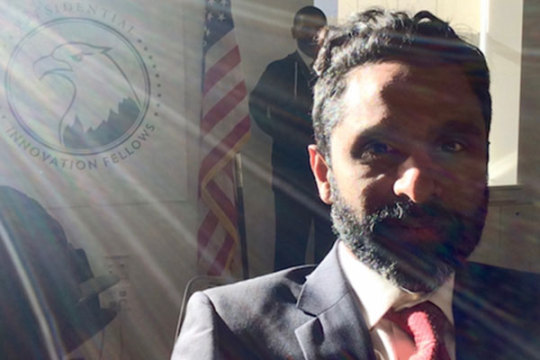
Candidate campaign page: http://www.patrick51.org/
Patrick Koppula is an inspiring candidate focused on a more equitable and human-centered legislative platform. Koppula’s response to Bike The Vote L.A. shows a focus on improving active transportation in Los Angeles. While some of his answers stop short of firm commitments towards progressive transportation policy, he says he is focused on working to build more walkable and bikeable communities.
Bike The Vote L.A. 2017 Primary Grade: B
(See below for full candidate questionnaire response)
1. What future do you see for active mobility, and public transit in the daily lives of Angelenos, particularly those who lack access to cars and rely on these other modes as their primary way of getting around?
My first commute was a seven minute *walk*. And I’ve prioritized activeness and time-effectiveness in my own transportation ever since. Through a person-centered policy analysis, I’ve learned a goal for people in AD 51, across circumstances, is a place to live that is healthy and a manageable distance from work and school. I think demand for active mobility and public transit will continue to rise in the future because they contribute to healthy living and distance manageability for people.
2. Do you support Vision Zero, an approach to street safety that treats each fatality as preventable and seeks to eliminate traffic deaths on public roads?
I read Fahrenheit 451 shortly before I took my drivers license test. That’s how I learned Ray Bradbury refused to drive an automobile. Thus, he avoided responsibility for traffic deaths for most of his life. The question of *who* takes responsibility for traffic deaths is on my mind because of mobility innovations like robot cars. So, I concur with “Vision Zero” with taking an explicitly ethical approach to traffic fatalities.
3. In Los Angeles, low-income communities of color are disproportionately burdened by the impacts of streets designed primarily for cars, without receiving proportional funding for their mobility modes like walking, biking, and quality mass transit. Would you support legislation to add a ‘complete streets’ policy to SB 1, California’s newly augmented gas tax, to direct revenues to projects and programs that benefit pedestrians, bicyclists and transit-dependent communities?
I was unpacking boxes shortly after moving to Los Angeles and my child was looking out the front window. “Daddy where are all the people?”. A few days later we were doing the same thing and this time I asked her what she was looking at. “Daddy there are more cars than people here.” We had moved from a neighborhood made for walking to a neighborhood made for parking and she was picking up on the differences in design. When at the State level we are empowering local communities with discretion and funding to design streets for what they use them for, than low-income communities can design their streets for how walking, biking, and quality mass transit fit into their lives.
4. In 2017, Assembly Members Phil Ting (D-San Francisco) and Jay Obernolte (R-Hesperia) introduced AB1103, a bill to enact an “Idaho Stop” adjustment to traffic code that allows cyclists to safely yield right of way at stop signs. This bill would help to reduce subjective traffic stops by law enforcement for a practice that is common by people on bikes and was endorsed by the L.A. Times Editorial Board. Will you commit to support an “Idaho Stop” bill that allows people on bikes to safely yield at stop signs as it comes up in the 2018 legislative session?
I grew up riding a Huffy through un-controlled intersections in a residential neighborhood. I don’t recall any confusion or confrontation between drivers and us bicyclists. I think this is because norms aligned our expectations. Even at more complicated – sometimes despite the control systems – communication and habitual norms save us all. Take pulling to the curb for a vehicle with a siren, for instance. Street norms in some places are in flux. I think confusion and confrontation will subside when we clarify street expectations. So though I do not yet know if AB1103 is the bill, I will commit to supporting bills to clarify new norms like Idaho Stop.
5. Would you support expanding state funding for bike share, and providing incentives for low-income individuals to afford high quality, family-friendly bikes that empower more economical mobility such as electric bikes and cargo bikes?
I’ll approach transportation innovation from a framework of equitable impact. I drive a Bolt, a provocative option for middle income people because of State incentives that eased the start up pricing problem for GM. Transportation innovations at all price points face the same start up pricing problem. Extending the incentive approach to lower price transportation alternatives will empower low-income persons to participate in the process choosing our mobility future.
